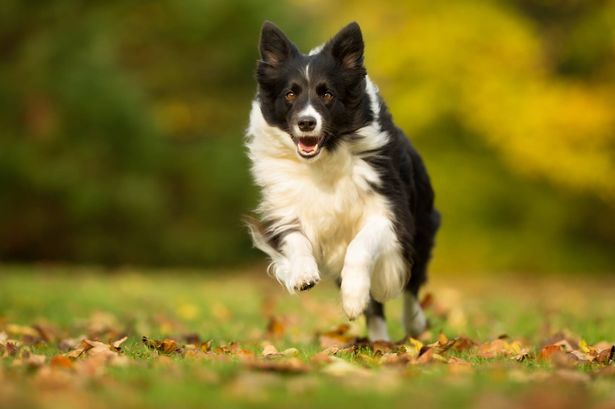Top Stories
RSPCA Alerts Pet Owners to Autumn Hazards for Dogs

Pet owners across the United Kingdom are being warned about the potential dangers of acorns and sycamore seeds as autumn approaches. The Royal Society for the Prevention of Cruelty to Animals (RSPCA) has highlighted these common hazards that can pose serious health risks to dogs, horses, and other farm animals.
As the season changes, the likelihood of pets consuming these toxic substances increases. Consumption of acorns or young oak leaves can lead to various symptoms, which may manifest within hours or take days to appear. The RSPCA emphasizes that recognizing these signs early can be crucial for the health of affected animals.
Recognizing Symptoms of Poisoning
The symptoms of poisoning can vary between species. However, pet owners should be vigilant for several common indicators, including:
– Vomiting and diarrhoea
– Abdominal tenderness
– Tiredness and depression
– Rapid weight loss
– Loss of appetite
– Dehydration
– Colic
– Weakness
– Head pressing
– Uncoordinated movements
The RSPCA advises pet owners to be cautious, especially when walking dogs in areas where these plants are prevalent. Their website states, “We understand it’s difficult to watch your dog’s every movement. However, if owners think their dog will show interest in or eat acorns, they should find a safer place to take their dog.” They also recommend bringing along toys or treats to distract pets during walks.
Ensuring Safety During Autumn
As days grow shorter, the RSPCA notes an increase in road incidents involving pets. To enhance visibility during evening walks, pet owners are encouraged to dress their dogs in reflective gear and consider fitting them with reflective collars. This simple measure can help prevent accidents as visibility decreases.
Additionally, as Bonfire Night approaches, pet owners should take steps to alleviate their pets’ stress during firework displays. Exercising dogs during daylight hours can help avoid exposure to fireworks. Closing windows and curtains can reduce noise and light disturbances, while playing music or turning on the television may also help mask the sounds of fireworks.
If pet owners are unsure whether their pet requires veterinary attention, they can consult resources like Vet Help Direct, which provides guidance on how urgently to seek help. Under the Animal Welfare Act, it is the legal responsibility of pet owners to ensure that any animal in their care is not in pain or suffering, and to seek veterinary care when necessary.
This autumn, the RSPCA urges pet owners to remain vigilant and proactive to protect their beloved companions from seasonal hazards.
-

 Health3 months ago
Health3 months agoNeurologist Warns Excessive Use of Supplements Can Harm Brain
-

 Health3 months ago
Health3 months agoFiona Phillips’ Husband Shares Heartfelt Update on Her Alzheimer’s Journey
-

 Science1 month ago
Science1 month agoBrian Cox Addresses Claims of Alien Probe in 3I/ATLAS Discovery
-

 Science1 month ago
Science1 month agoNASA Investigates Unusual Comet 3I/ATLAS; New Findings Emerge
-

 Science4 weeks ago
Science4 weeks agoScientists Examine 3I/ATLAS: Alien Artifact or Cosmic Oddity?
-

 Entertainment4 months ago
Entertainment4 months agoKerry Katona Discusses Future Baby Plans and Brian McFadden’s Wedding
-

 Science4 weeks ago
Science4 weeks agoNASA Investigates Speedy Object 3I/ATLAS, Sparking Speculation
-

 Entertainment4 months ago
Entertainment4 months agoEmmerdale Faces Tension as Dylan and April’s Lives Hang in the Balance
-

 World3 months ago
World3 months agoCole Palmer’s Cryptic Message to Kobbie Mainoo Following Loan Talks
-

 Science4 weeks ago
Science4 weeks agoNASA Scientists Explore Origins of 3I/ATLAS, a Fast-Moving Visitor
-

 Entertainment4 months ago
Entertainment4 months agoLove Island Star Toni Laite’s Mother Expresses Disappointment Over Coupling Decision
-

 Entertainment3 months ago
Entertainment3 months agoMajor Cast Changes at Coronation Street: Exits and Returns in 2025









